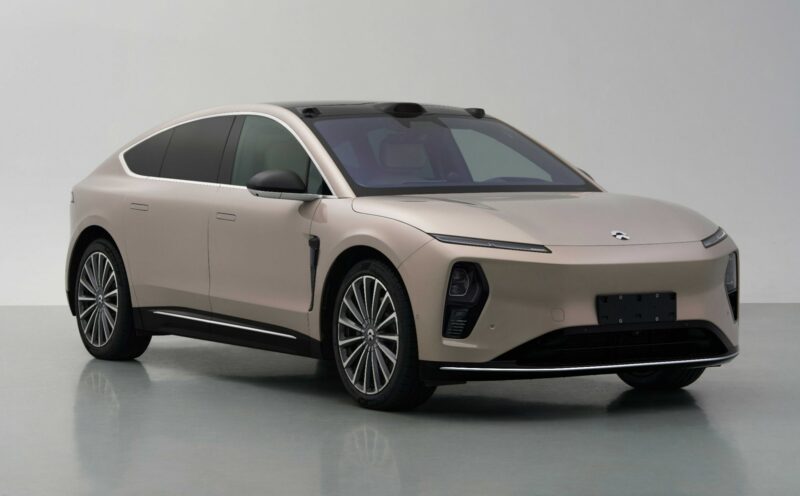Nio ET9 flagship applied for sale licence in China, revealing nearly 700 horsepowers
The production version of the Nio ET9 flagship sedan was revealed as the company applied for a sales license in China. The executive four-seater will be over 5.3 meters long, weigh 2,700 kg, and be powered by dual motors with an output of nearly 700 horsepower.
In China, every car must be approved by the local regulator before hitting the market, and the Ministry of Industry and Information Technology (MIIT) publishes the list of vehicles that undergo the monthly homologation process. Automakers are not happy about this because it reveals production version images and specs of cars they haven’t officially launched, but we don’t mind.

Nio’s most expensive car was unveiled last December, and presales were started for 800,000 yuan (112,000 USD). Deliveries are supposed to begin in the first quarter of 2025.
The homologation fillings confirmed that the ET9 will be manufactured in Nio’s Hefei plant in NeoPark, sometimes called F2.
The production version is not very different from the concept we saw last year; only classic rear mirrors were added instead of digital, and bumpers are slightly adjusted. A large camera is on top of the rear window.
The four-seater’s dimensions are 5325/2017/1621 mm (length/weight/height), with a 3250 mm wheelbase. The curb weight is 2,700 kg. The wheels’ specifications are HL255/45R22 and HL265/40R23.
The EV is powered by dual motors, with the front YS198S002 providing 180 kW and the rear TZ198Y001 with 340 kW. The combined output is 520 kW (697 hp), and the top speed is 220 km/h. Nio Power Technology in Hefei developed both motors in-house.

ET9, like all Nio cars, supports battery swap, and the pack is provided by CATL. It has 46105 cylindrical battery cells, co-developed with Nio, the company claims.
During the unveiling ceremony a year ago, Nio teased that the battery pack would have a capacity of 120 kWh and an energy density of 292 Wh/kg. Moreover, it will also be possible to swap a semi-solid state battery pack with 150 kWh capacity, as all Nio battery packs have standardized dimensions.
The electric sedan is built on 925V architecture and supports 5C fast charging, enabling it to add 255 km of CLTC range in 5 minutes. ET9 has a peak charging power of 600 kW so that it can fully take advantage of Nio’s latest 640 kWh charging station. It can also do a battery swap in about 3 minutes.
Nio puts a lot of marketing effort into showing the new Skyride stabilization system, revealing videos where ET9 can use it to play tabletop football or drive with glasses of champagne over speed bumps.
Nio ET9 will compete with Mercedes-Maybach in China.



